showing entries tagged "Education"
Are Checks Obsolete?
Checks hold an odd place in our personal finances. In many ways, checks seem like relics from a previous era. We maybe write one or two checks a month (usually for rent or similar bill-paying situations where electronic payment simply isn’t an option). This is vastly different from only a few decades ago, when checks represented more than 85% of all non-cash retail payments. (Can you imagine whipping out a checkbook in line at the grocery store? Times have certainly changed!)
by: banzai
Scams Targeting Seniors
Scammers target seniors more aggressively than any other group. Recognizing the most common scams helps prevent your money and personal information from getting stolen.
by: banzai
Tracking Your Joint Expenses
It’s hard enough keeping track of your own expenses. So you shouldn’t be surprised that managing money as a team effort can test your patience, especially if your partner has a different method of keeping financial records—or worse, no method at all.
by: Banzai
Certificate of Deposit
If you're willing to wait, a CD can be a great way to earn a high interest rate on the money you deposit.
by: IAMT
Use Psychology to Build a Budget You’ll Stick With
When you start looking for financial advice (or any kind of advice, for that matter), experts will share their take on what’s “good” and what’s “bad.” In personal finance, there are some classifications that we can all agree on: Debt is bad. Emergency funds are good. Overdrawing your account is bad. Earning interest on your savings is good.
by: IAMT
Learn to Spend, Save and Give
For most people, spending comes naturally. Saving up for something special is harder. And setting money aside for giving is really hard.
by: IAMT
What does it mean to be a credit union member?
Even though there are over 5,000 credit unions in the United States, many misconceptions about their structure and their services still exist. One popular-but-false assumption is that the term “credit union member” is interchangeable with the term “credit union customer.” It might seem like a harmless mistake, but the concept of membership is what sets credit unions apart from other financial institutions. A “member” isn’t an empty marketing term—it reflects your credit union’s commitment to co-operative values and shapes your entire banking experience. As a member, you’re a part owner, you have a say in how your credit union is run and you get to share in its success in tangible ways.
by: IAMT
Why Do People Borrow Money?
Borrowing money comes at a cost. This extra cost is called interest. If borrowing money costs more, why do people still do it? Here are three reasons why:
Choosing your financial institution
by: banzai
Recognizing and Avoiding Scams
Con artists cheat Americans out of billions of dollars every year. Recognizing red flags for potential scams can help protect you, your loved ones, and your hard earned cash.



